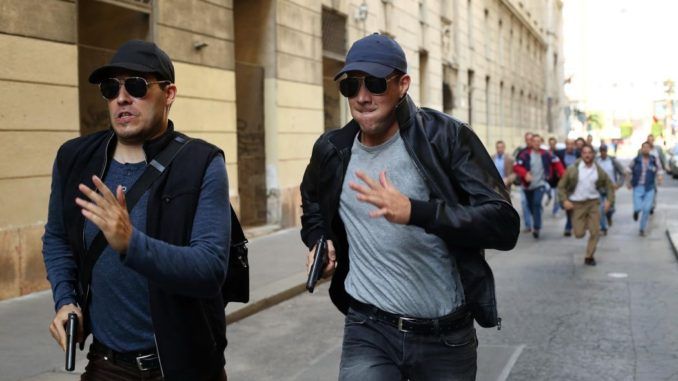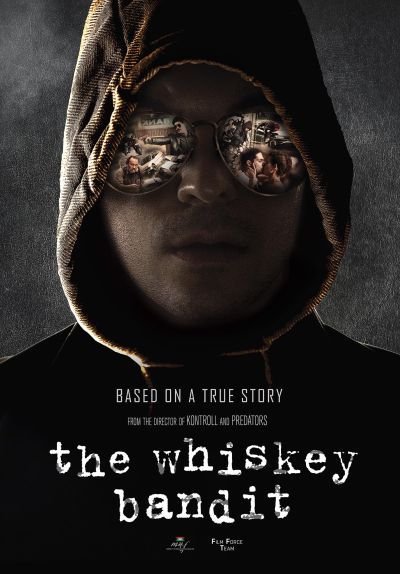
Rating: B
Dir: Nimród Antal
Star: Bence Szalay, Zoltán Schneider, Piroska Móga, Viktor Klem
a.k.a. A Viszkis
This is a story which, if you made it up, would be immediately rejected as too implausible. Naturally, it’s largely based on fact. Attila Ambrus (Szalay) was a Romanian refugee who fled to Hungary in the late eighties. He became an ice hockey goalie (albeit a crap one, conceding 23 goals in one game), but to supplement his income, took to robbing banks and post offices. During a six-year period beginning in 1993, he hit 27 establishments without injuring anyone, becoming something of a folk hero. A newspaper editorial said, “He didn’t rob banks. He merely performed a peculiar redistribution of the wealth, that differed from the elites only in its method.”
He acquired the titular nickname, due to a habit of drinking in a bar near the target before his crimes. Eventually caught, he escaped by rappelling from a fourth-floor window using a bedsheet, was recaptured, spent 12 years in jail before being released in 2012, and now makes pottery for a living. That is the Wikipedia synopsis. The film spins these basic facts into a yarn, mostly told in flashback. The main body unfolds after Attila’s arrest by the man who has been chasing him for years, growing increasingly jaded at the media hype. Detective László Bartos (Schneider) interviews Attila, seeking to find out the details of the crime spree. This includes his relationship with girlfriend Kata (Móga), and recruiting Géza (Klem), the son of his hockey coach, as an accomplice to help rob banks too big for a one-man job.
 I’d like to have heard more about that cultural impact, perhaps what separates Attila most from other bank robbers. The closest we get is him attending – and thoroughly enjoying – a play based on his exploits. There’s still plenty to chew over here, not least in terms of what triggered his life of crime. Partly the need to fund his grey-market citizenship, partly a desire to keep Kata in the style to which she has become accustomed. Although that appears a cinematic conceit: in reality, Attila wasn’t a one-woman guy, and a regular at local high-class brothel, the Cat’s Club. That’s glossed over here, and Szalay, who looks like a Hungarian version of Mark Wahlberg, makes for a sympathetic hero: he’s outraged and appalled when the cops try to charge him with attempted murder.
I’d like to have heard more about that cultural impact, perhaps what separates Attila most from other bank robbers. The closest we get is him attending – and thoroughly enjoying – a play based on his exploits. There’s still plenty to chew over here, not least in terms of what triggered his life of crime. Partly the need to fund his grey-market citizenship, partly a desire to keep Kata in the style to which she has become accustomed. Although that appears a cinematic conceit: in reality, Attila wasn’t a one-woman guy, and a regular at local high-class brothel, the Cat’s Club. That’s glossed over here, and Szalay, who looks like a Hungarian version of Mark Wahlberg, makes for a sympathetic hero: he’s outraged and appalled when the cops try to charge him with attempted murder.
Antal does a stylish job of depicting things, from an opening one-shot showing Attila getting his drink, marching across to his target, and going into action. As the net closes in, there are some well-assembled chase sequences, which make up for in tension, what they lack in giant fireballs. That was a pleasant surprise. Given its Eastern European origins, I was expecting more of a lugubrious drama than a pulse-pounding thriller, and this was far more entertaining than I expected. Bonus point here for casting the real Attila in a small role as a taxi-driver, who doesn’t realize his fare is the Whiskey Bandit.
